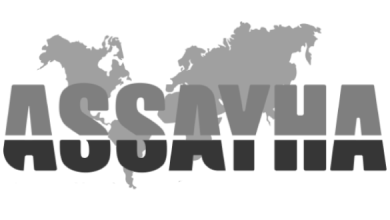Dividing the Homeland
On the necessity of developing the Revolution's slogan and opposing War

Babiker Faisal
The blessed December Revolution adopted the slogan “Freedom.. Peace.. Justice” as a compass to lead the course to achieving the major goals for which millions of Sudanese took to the streets, raging with emotion, but protesting peacefully to overthrow the corrupt, tyrannical regime. Following the outbreak of the accursed April 15th War, the democratic civil forces raised the slogan “No to War” to express their bias towards the masses and their refusal to identify with the parties to the war.
Since the earlier days of the war, the civil forces have been incessantly ringing the alarm bells, warning that the continuation of the war will lead to dire consequences for the country and its people, at the forefront of which is the significant danger that will threaten the unity of the country and herald its division and the fragmentation of its current entity.
After more than twenty months of war in Sudan, the danger of dismantle in the country has become glaringly evident through unmistakable practices, most notably of which is the regional and racist hate speech that struck at the heart of the social fabric and created a psychological barrier that paves the way for the country’s clear division.
This was followed by three steps taken by the de facto authority in Port Sudan, which were as follows: The decision to change the currency, which imposed a new reality on the ground, represented by dividing the financial system in the country, hence, states that fall under the control of the Sudanese Armed Forces (SAF) began to deal with a currency different from that circulated in the areas controlled by the Rapid Support Forces (RSF).
Likewise, the decision to hold the Sudanese Certificate -Certificate of Secondary Education (CSE)- exams in the states controlled by the Sudanese Army, purposefully excluding the states under the Rapid Support Forces’ control, in addition to the states where battles are still raging, which practically serves to perpetuate the process of dividing the country by depriving Sudanese students of their right to take the exams just because they are residing in a geographical territory that isn’t controlled by the Sudanese Army.
The third step taken by the de facto authority in Port Sudan is represented by the inability of large sectors of the Sudanese people to obtain identification papers (national numbers, passports, etc.), which, in itself, is a natural right granted due to the citizenship, on which rights and duties in the State are based. This step – as well as the aforementioned two, are motivated by the same reason.
These steps represented the actual beginning of division in the country, and are further exacerbated by the imminent step -to be taken- by some political forces and Armed Movements, that is; to declare a parallel government that finds its justification in the necessity of serving the people in areas not controlled by the Sudanese Army. Moreover, there is no doubt in mind that this particular step will pose a significant danger to the unity of the country, regardless of the justifications for its formation (Using the cause to heal the ailment).
To confront these rapidly developing-rather dangerous- facts, the democratic civil forces and revolutionary forces ought to accomplish the major task of preserving the unity of the country, as they have no choice but to form a broad civil front through which the slogan of the revolution is developed to become “Freedom.. Peace.. Justice.. Unity”, as well as developing the slogan of opposing the war to become “No to War, No to Dividing the Country”.
The importance of preserving the unity of the country is in no way less critical than calling for an immediate cessation of the war, and there is no acceptable alternative but for all forces keen on preserving the country’s unity to come to an agreement through which all differences are overcome in order to achieve both goals.




